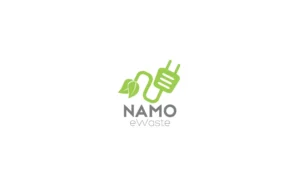A share buyback is when a company repurchases its own shares from shareholders, reducing the number of shares available in the open market. Companies may choose to buy back shares to boost shareholder value, reduce supply, or because they believe their stock is undervalued. This guide will help you understand the types of buybacks, their benefits, and how to participate in upcoming buybacks in India in 2024.
What is a Share Buyback?
A share buyback is a corporate strategy where a company buys its own shares from the market. This reduces the number of shares available, potentially increasing the value of remaining shares. Buybacks can be funded with the company’s cash reserves or through borrowing. Companies often initiate buybacks to increase their share price, improve financial ratios, or return excess cash to shareholders.
Upcoming Share Buybacks in India 2024
Here’s the full table of the upcoming share buybacks in India for 2024:
| Company Name | Record Date | Open Date | Close Date | Buyback Price (₹) |
|---|---|---|---|---|
| Jai Corp | Sept 10, 2024 | TBA | TBA | – |
| Arex Industries | Sept 7, 2024 | TBA | TBA | 195 |
| Ladderup Finance | Sept 6, 2024 | TBA | TBA | 44 |
| Aarti Drugs | Sept 5, 2024 | TBA | TBA | 900 |
| Transport Corporation Of India | Sept 4, 2024 | TBA | TBA | 1200 |
| Nucleus Software | Sept 3, 2024 | TBA | TBA | 1615 |
| Indian Toners and Developers | Aug 30, 2024 | TBA | TBA | 450 |
| Weizmann | Aug 30, 2024 | TBA | TBA | 160 |
| Suprajit Engineering | Aug 27, 2024 | TBA | TBA | 750 |
| Technocraft Industries | Aug 27, 2024 | TBA | TBA | 4500 |
| KDDL | Aug 27, 2024 | TBA | TBA | 3700 |
| VLS Finance | Aug 26, 2024 | TBA | TBA | 380 |
| Mayur Uniquoters | Aug 23, 2024 | TBA | TBA | 800 |
| Symphony | Aug 21, 2024 | TBA | TBA | 2500 |
| AIA Engineering | Aug 20, 2024 | TBA | TBA | 5000 |
| Chaman Lal Setia Exports | Aug 19, 2024 | TBA | TBA | 300 |
| CERA Sanitaryware | Aug 16, 2024 | TBA | TBA | 12000 |
| Savita Oil Technologies | Aug 16, 2024 | TBA | TBA | 675 |
| Dhanuka Agritech | Aug 16, 2024 | TBA | TBA | 2000 |
| TTK Prestige | Aug 14, 2024 | TBA | TBA | 1200 |
| Navneet Education | Aug 13, 2024 | TBA | TBA | 200 |
| Indus Towers | Aug 9, 2024 | TBA | TBA | 465 |
| Welspun Living | Aug 5, 2024 | Aug 9, 2024 | Aug 16, 2024 | 220 |
| Aurobindo Pharma | July 30, 2024 | TBA | TBA | 1460 |
| eClerx Services | July 4, 2024 | July 9, 2024 | July 15, 2024 | 2800 |
| Bajaj Consumer | July 2, 2024 | July 9, 2024 | July 15, 2024 | 290 |
| Godawari Power & Ispat | June 28, 2024 | TBA | TBA | 301 |
| Cheviot Company | June 14, 2024 | June 21, 2024 | June 27, 2024 | 1800 |
| Ajanta Pharma | May 30, 2024 | TBA | TBA | 2771 |
| Tips Industries | April 22, 2024 | April 26, 2024 | May 3, 2024 | 625 |
| Anand Rathi | April 12, 2024 | TBA | TBA | 4450 |
| Freshtrop Fruits | April 2, 2024 | April 8, 2024 | April 15, 2024 | 175 |
| Dwarikesh Sugar Industries | March 20, 2024 | March 26, 2024 | April 2, 2024 | 105 |
| Bajaj Auto | Feb 29, 2024 | March 6, 2024 | March 13, 2024 | 10000 |
| Garware Technical | March 12, 2024 | March 18, 2024 | March 25, 2024 | 3800 |
| Shervani Industrial | March 7, 2024 | March 13, 2024 | March 20, 2024 | 510 |
| Zydus Lifesciences | Feb 23, 2024 | TBA | TBA | 1005 |
| Kaveri Seed | Feb 23, 2024 | TBA | TBA | 725 |
| Orbit Exports | Feb 13, 2024 | TBA | TBA | 250 |
| Arnold Holdings | Jan 25, 2024 | Feb 1, 2024 | Feb 7, 2024 | 21 |
| Rajoo Engineers | Jan 31, 2024 | Feb 6, 2024 | Feb 12, 2024 | 210 |
| Chambal Fertilisers | Jan 18, 2024 | Jan 24, 2024 | Jan 31, 2024 | 450 |
| Dhampur Sugar Mills | Jan 17, 2024 | Jan 23, 2024 | Jan 30, 2024 | 300 |
| Elegant Marbles | Jan 5, 2024 | Jan 11, 2024 | Jan 17, 2024 | 385 |
| Atul Buyback | N/A | Nov 21, 2023 | Feb 23, 2024 | 7500 |
Types of Buyback Offers
There are two primary types of buyback offers in India:
- Tender Offer: The company offers to buy back shares from shareholders at a premium price. If a shareholder is eligible, they can tender their shares via their Demat or trading account. The company then buys back the shares based on a predetermined ratio.
- Open Market Offer: The company buys its shares directly from the stock market over a period. Shareholders can sell their shares during the buyback window. Open market buybacks may last several months, depending on the company’s plan.
Why Do Companies Go for Share Buybacks?
Companies opt for share buybacks for several reasons:
- To reduce the number of shares in the open market, increasing the value of remaining shares.
- To boost the share price by reducing supply.
- To enhance shareholder value by returning cash.
- To use excess cash reserves effectively.
- To signal confidence in the company’s future prospects.
- To offer shares to employees as stock rewards or options.
How Does a Share Buyback Work?
When a company decides on a buyback, it files a letter of offer with SEBI (Securities and Exchange Board of India) and gets approval. The company determines the buyback type, ratio, number of shares, buyback amount, record date, and the timeline for the buyback process. The buyback begins according to the schedule, either through a tender offer or open market offer.
Benefits of Participating in a Share Buyback
Participating in a share buyback can offer several advantages:
- Higher Price: Companies usually offer a premium price over the current market value.
- Increased Share Value: Reducing the number of shares increases earnings per share (EPS) and may lead to higher market prices.
- Improved Liquidity: Shareholders can exit their investment at a potentially higher price.
- Tax Benefits: Compared to dividends, capital gains from buybacks may be taxed at a lower rate.
How to Participate in a Share Buyback
To participate in a buyback:
- Check Eligibility: Ensure you own shares in your Demat account before the record date.
- Apply Through Your Broker: Follow the instructions from your broker to tender your shares in the case of a tender offer.
- Monitor Open Market Offers: For open market offers, watch the buyback period and sell your shares through your trading account.
For more tips on IPO allotment and other investment opportunities, explore our comprehensive guides.
Share Buyback FAQs
1. What is a share buyback?
A share buyback is when a company repurchases its own shares to reduce the number of shares in circulation and potentially increase the value of remaining shares.
2. How many types of buyback offers are there?
There are two types: Tender Offers and Open Market Offers.
3. What is the record date in a buyback offer?
The record date is when shareholders must own the stock in their Demat account to be eligible for the buyback.
4. Why do companies buy back shares?
Companies buy back shares to reduce the number of shares in the market, increase share value, or return cash to shareholders.
5. What are the tax implications of a share buyback?
Taxes on share buybacks may differ from those on dividends, often favoring capital gains.
6. How do I participate in a share buyback?
Ensure you are eligible by owning shares before the record date, and then follow your broker’s instructions for tendering shares or selling them in the market.
Related Resources
- Learn about IPO Grey Market Premium for upcoming IPOs.
- Find out more about Rights Issues and how they work.
- Explore our guide on Investing in NCDs.
Conclusion
Understanding share buybacks can help you make informed investment decisions. By participating in upcoming buybacks in India in 2024, you can take advantage of potential returns, premium prices, and improved liquidity. Stay updated with the latest buyback news and market trends to make the most of these opportunities.
For more insights on investment strategies, visit IPO Gray Market and explore our resources on IPO allotment, IPO reviews, and more.



